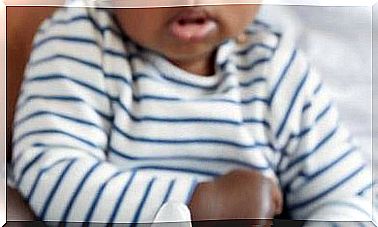You Also Learn To Be Parents
Educating is as rewarding as it is difficult and uncertain. Parents must express their love for their children in their behavior, generating a fruitful interaction.

Raquel doesn’t know what to do. Suddenly, Gonzalo, aged two and a half, has caught a tantrum in the middle of the restaurant. You have tried to ask what is wrong, but the child does not respond. She has tried to calm him down, hugging him and saying soothing words, but the little one is furious and tries to get away from her.
How should you act? Are you threatening to punish him if he doesn’t stop? Do you put the child in the stroller and leave in a hurry? Does he get angry and scold you? Are you trying to distract him?
Raquel feels overwhelmed and notices the looks of the rest of the diners. Little by little the anguish and bewilderment grow in her.
Parents’ doubts
Educating is surely the most complex task we face. At birth, a child’s brain is a set of neurons and tissues ready to absorb everything we give it. And on us, as parents, he will depend for many years to learn to speak, regulate his emotions, behave, establish bonds with other people, be happy.
“Educating is a luxury, a dynamic process between parents and children, very beautiful and enriching, which lasts a lifetime, and which requires that, at each stage, we must adapt. The essential ingredient is love,” says Javier Urra, educational activist, psychologist and pedagogue.
Parents want to do their best, give their children tools to cope with life, contribute to being whole people. If the child behaves well and obeys, everything goes smoothly.
But when the child does not listen to reasons, ignores or rebels, parents can become frustrated, unable to control their children, struggling between anger and sadness. It is easy for them to feel responsible or even guilty for their actions and to doubt their ability to educate them.
A new model of education
Until a few generations ago, educating basically consisted of meeting the basic needs of the child. Parents were educated and also grandparents, who used to be at home. Now, however, circumstances and times have changed.
We are extremely concerned about the education of our children, we read books, we attend talks, we seek information on what to do if this or that happens. In addition, nowadays not only parents educate, so do school, friends, television or the Internet.
“Society is very complex, parents receive contradictory messages about what is more convenient to do in each situation. And that makes them feel scared and have a certain guilt complex, especially mothers, especially if they work,” says José Antonio Marina, founder of the University of Parents where pedagogues and psychologists explain what happens to children at each stage, advise parents what aspects to work with and how to approach certain situations.
Educational tools: love, demand and dialogue
For Marina, parents have three great resources to continually turn to and which function as powerful educational tools at all stages of the child’s life: tenderness, demand and communication.
“It is very important not only to love your children, but to continually convey to them that this is unconditional : whatever they do, we will always love them very much,” says Cristina Gutiérrez, at the head of La Granja, a nature school for children and a foundation for education. That love must permeate all decisions and actions.
The requirement and the establishment of limits are another of the fundamental ingredients in education. For Javier Urra, parents must be aware that they are not just colleagues or friends of their children, but educators who provide support and unconditional love. From a young age, children need rules that regulate their world to feel safe, and these must be appropriate for their age.
The repetitions and the rituals organize the reality of the children and allow to fix learnings and behaviors. They are also a good tool for parents to encourage certain actions. It is essential to maintain these limits with a firm attitude, something not easy for some parents, who may sometimes feel insecure or even guilty, which leads them to rectify or offer compensation to the child if he feels bad.
“Non-authoritarian firmness, but loving. Without a trace of anger or tension,” advises Constanza González, a clinical psychologist.
Therefore, if a child hits his friends in the park, you have to be consistent and stand firm: “We will not go to the park again until you reconsider, because no child will want to play with you if you hit.” And no sales. The child must take responsibility for his actions.
Although there is not full agreement, because sometimes it is not possible, firmness when making decisions and setting limits must lead to coherence, both on the part of the father who makes it and between the couple. If a daughter refuses to clean up her room and an adult does it for not arguing, she will not get into the habit of doing it herself. And if you receive a punishment but it is not maintained or the other spouse forgives it, little is going to be achieved.
The child should not receive conflicting messages from the parents.
“Children get frustrated when they do not have what they want, but the role of parents is to give them what they need, not what they want. As parents this implies going through many feelings of guilt and frustration, which will have to be accepted and assumed, because things don’t usually go right the first time. The most important thing is not to throw in the towel, not to resign from the ‘parents’ task, but to keep trying, until it finally works out, “adds child psychologist Carme Balagué.
Parent-child communication: truly sharing
A great pedagogical resource available to parents is communication, the word. It is convenient to talk a lot with the children from an early age, to explain to them why they have to do this or that thing; in short, reason.
” Although sometimes it seems to us that they will not understand us or that it is useless, we have to make that effort, so that from an early age they grasp the importance of the word,” says José Antonio Marina.
In order to establish a fluid dialogue with the children, it is necessary to lay the right foundations and rescue time, tenderness and spaces, essential ingredients for communication.
Some ideas to improve our parent-child communication are:
- Listen to them. From the outset, it is necessary to learn to listen to them in a generous and empathetic way, without judging them, taking their emotions into consideration and showing respect. Pay attention to what the child says and how it is essential, even if they seem unimportant, since they do.
For example, if he comes home from school crying because he has not been invited to a birthday party, that is a tragedy for him, as it would be for an adult to be unemployed. - Attend to your feelings. Tenderly wrapping the words favors a good attunement. It is convenient to see what emotions our words and actions generate in him. The child needs to feel understood and for his parents to realize how bad he may be, rather than downplaying the fact.
- Patience. It is necessary to allow the child the time he needs to express what he feels, without rushing him or trying to interpret his words, just listening to him. You also need to keep your attention when you speak, without doing other things or changing the subject.
- Open phrases. Sometimes questions are not the best way to start a conversation; Open sentences are often more useful. Instead of asking directly “what is wrong with you?”, You can choose “today I see you somewhat downcast.” In this way, the child does not perceive it as an interrogation, but as an invitation to express himself.
- Show curiosity. To encourage the child to tell us things, it is highly advisable to show a sincere curiosity for his world, for the subjects that interest him, for his friends, for the things he does.
Emotional awareness to educate better
Educating is not a simple process, so it is totally normal that sometimes parents feel overwhelmed, without knowing how to act, that they need time for themselves, that they experience frustration after implementing solutions that have not worked.
” The important thing is to see what we do with that frustration that we feel. Do we transfer it to the child and the relationship we have established with him or, on the contrary, do we become aware of that feeling, admit it, and let it pass and go? “–Says the psychologist Constanza González–.
“This process of observing one’s own emotions must be done from curiosity, without experiencing value judgments, or feeling bad, or thinking that we are bad parents or that we do not know how to do it.”
It is about parents learning to see what their child’s behavior makes them feel, what it stimulates in them. When a child cries with rage in a supermarket, for example, and is immediately given what he wants to end this cumbersome situation, he is being shown that this behavior is valid to achieve his wishes.
Therefore, it is necessary to learn to relate to what the child mobilizes in us and also to what we move in him. This leads to knowing how to recognize what our limits are and also what are those of the child.
“It is not a question of reacting to what the child does, but of acting in the way that we believe is most appropriate, after assessing what our child needs to receive and what not,” indicates child therapist Carme Balagué. In fact, according to this child psychologist, it is not so important what decision is made at each moment but from where it is taken: “From anger, discomfort, anger at the situation? Or, on the contrary, from responsibility and the right to be parents? “
You have to stop, take time to breathe, see what happens, assess the situation and what the child needs, and know if we can give it to them at that moment.
Accept imperfection
“During breakfast a child can take a tantrum and throw the food on the floor, just when they have to leave home with the minutes counted to get to school. At that moment there is no time to reason or explain to the child nothing. it should therefore be practical and keep calm he points Balagué-. Now we’ll do better next time, nothing happens. Nor should we obsess over it perfect every time. Just be aware of what is done and that”.
There is no foolproof strategy. It is convenient to be compassionate with yourself and accept that, whatever we do, something will always be missing.
Since parents love their children so much, they try to prevent them from suffering. “It is a natural tendency. We do not want to see anyone we love suffer,” says Constanza González, a clinical psychologist, who recalls that “suffering and mistakes are inevitable and are part of life.”
Getting it wrong is part of the experience. In fact, this is often how we learn, after repeatedly falling and getting up. And we cannot do it from the experience of others. Parents are afraid that their children may suffer and experience this learning process as a source of frustration.
“Things get complicated if the feeling of guilt appears, which pushes them to compensate and give in so as not to frustrate the child any more,” says child therapist Carme Balagué.
“We do our best knowing that there will be moments of doubt, failures, steps backwards. But the human being is not perfect, nor should he try to be,” says Javier Urra. “Let’s enjoy being parents and our children. Let’s support their teachers, let’s meet their friends, let’s play sports with them, let’s put a sense of humor in everything, let’s put problems down. Having a child is a wonderful experience and most of us educate them wonderfully. The proof is that they are lovely people. “
There are no perfect parents, but we can be the best parents our children can have.









